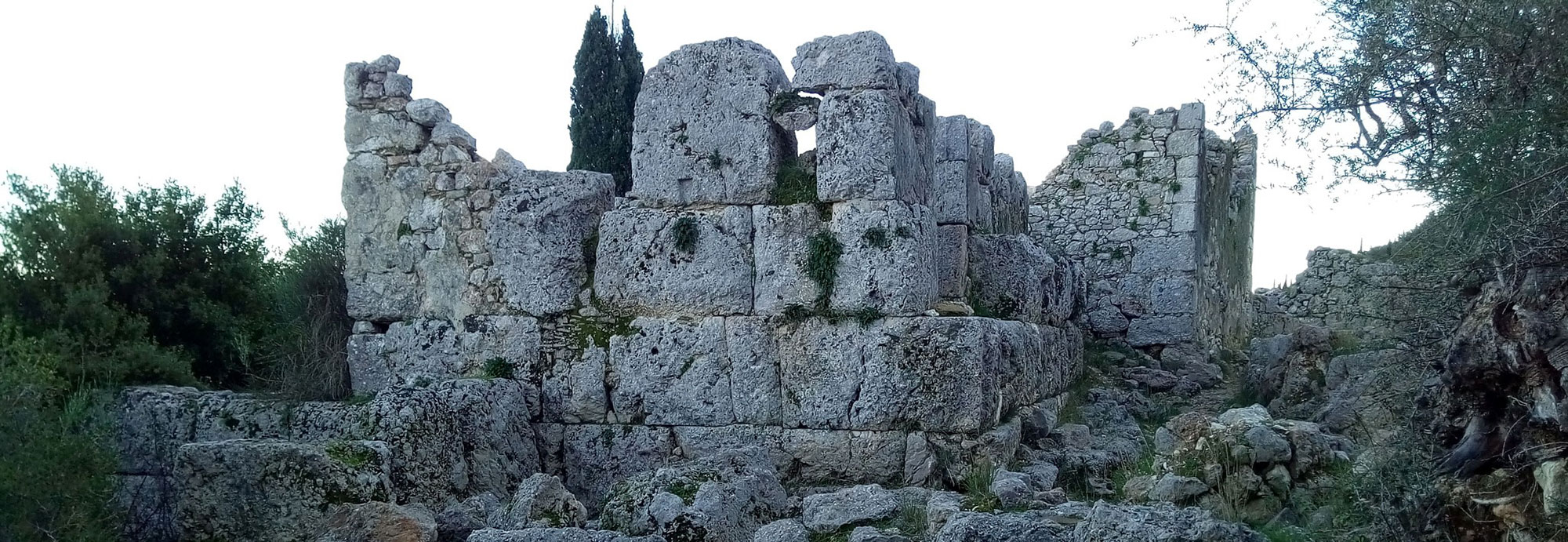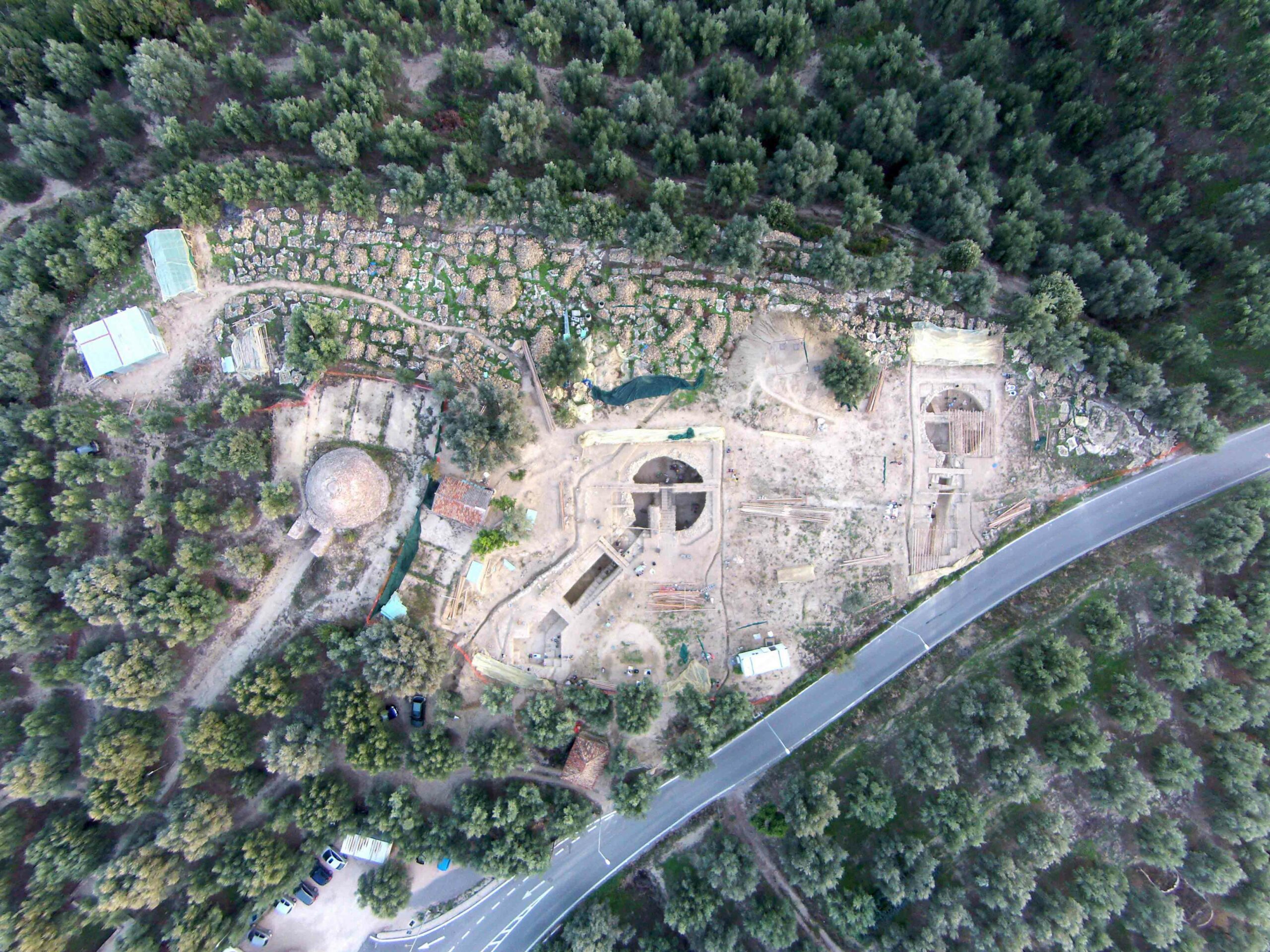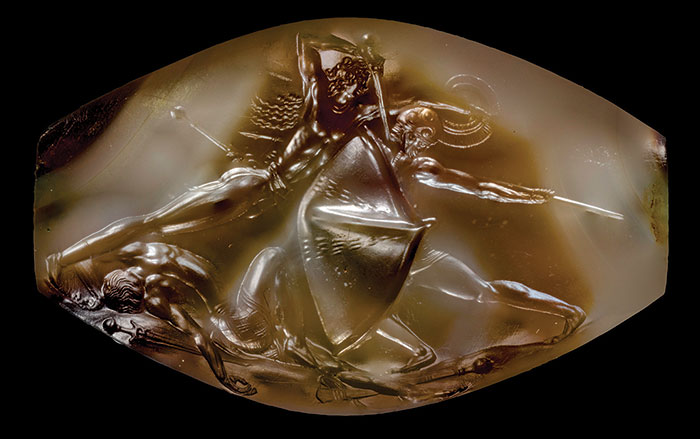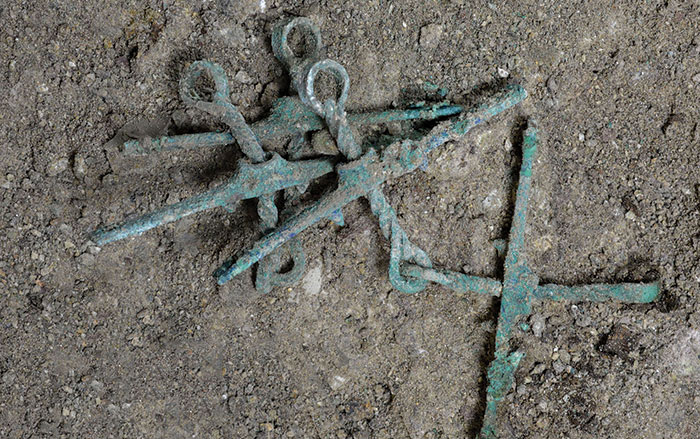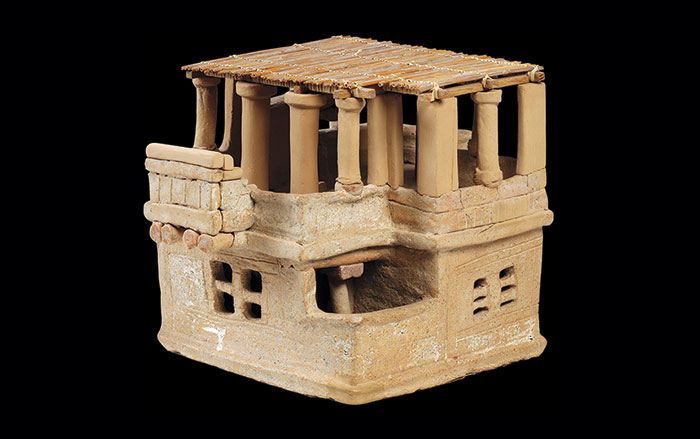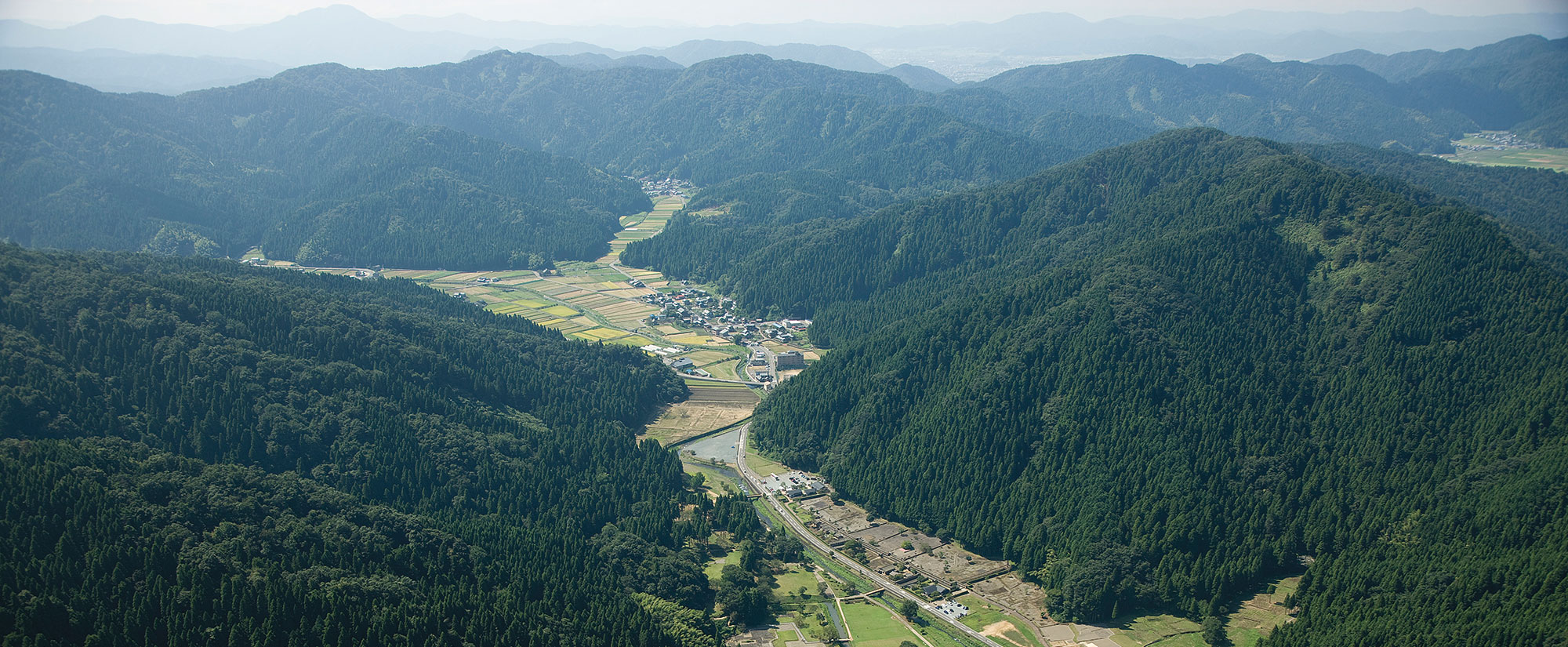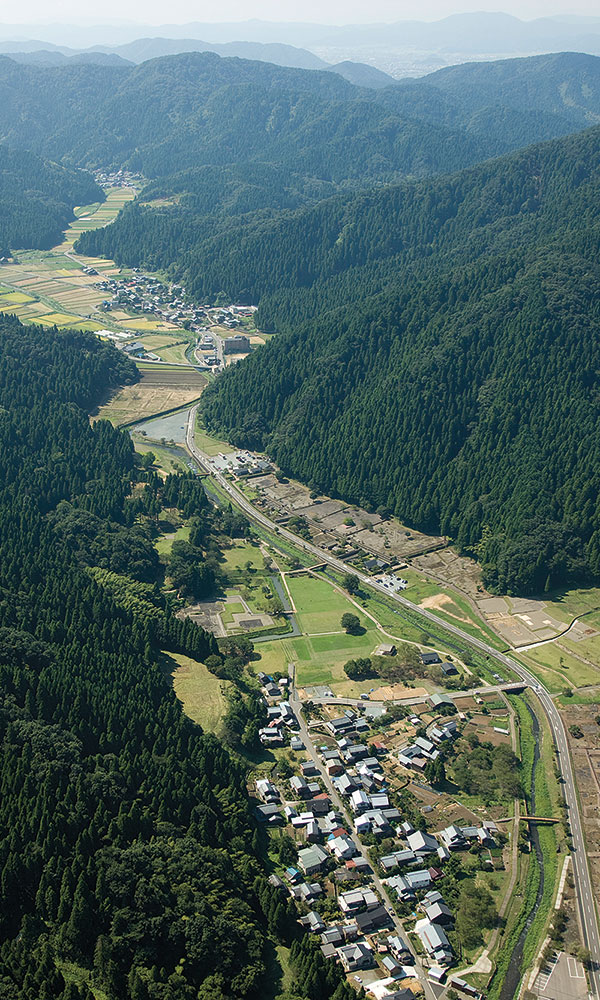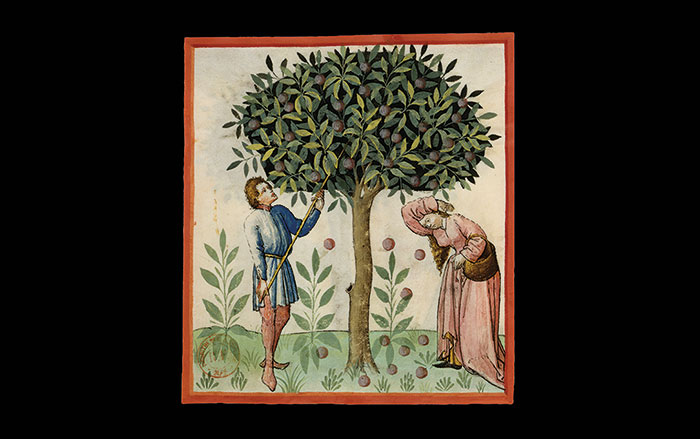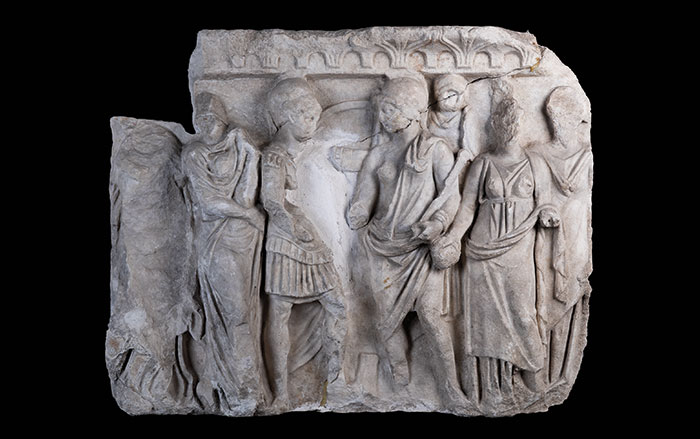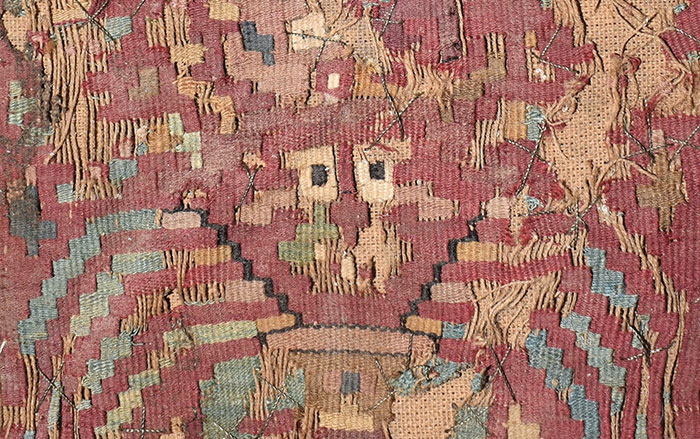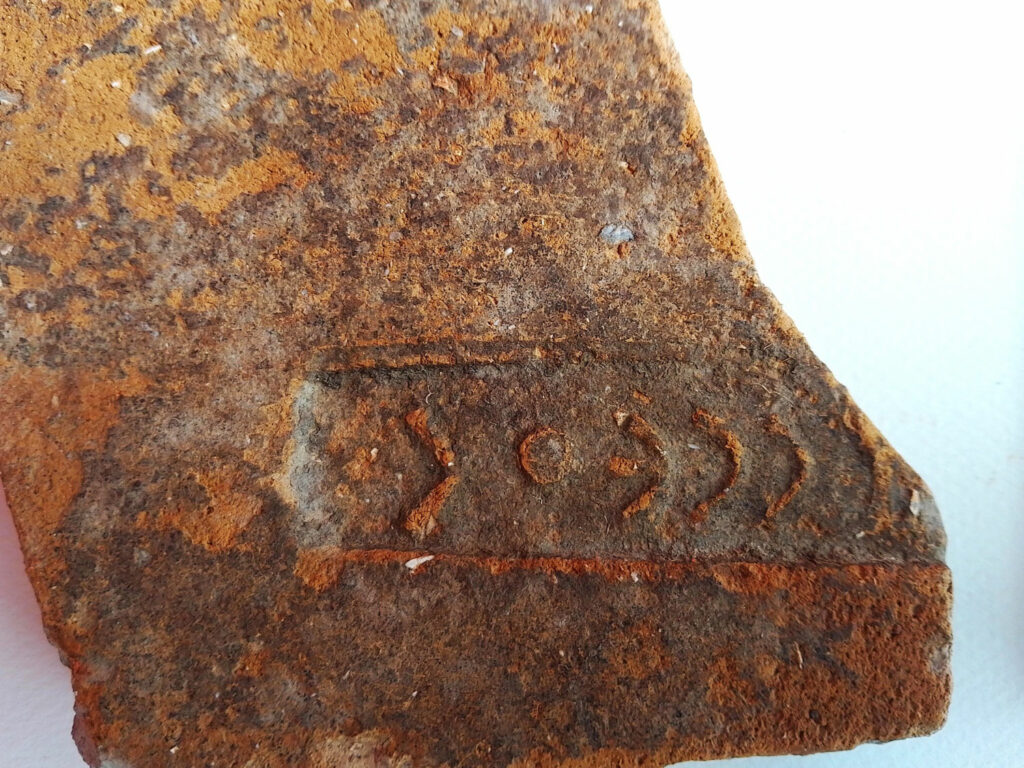
ITHACA, GREECE—In Homer’s epic poems the Iliad and the Odyssey, the Greek hero Odysseus hails from the island of Ithaca in the Ionian Sea. Greek City Times reports that archaeological work conducted by a team from the University of Ioannina has uncovered further evidence of the Trojan War warrior’s association with the island. The recent excavations occurred near the village of Exogi at the site of Agios Athanasios, often referred to as the “School of Homer.” Archaeologists uncovered significant evidence of a major Mycenaean Age settlement there dating to the fourteenth or thirteenth century b.c., the supposed era in which the mythological Odysseus lived. This included a huge underground cistern constructed from monolithic blocks. The settlement was likely part of a network of seven or eight Mycenaean sites that formed the core of the island’s Bronze Age urban landscape. Even more significant, however, was the discovery of tiles stamped with Odysseus’ name as well as a small bronze bust of the king himself. Scholars now believe these came from an Odysseion, a sanctuary dedicated to his hero cult worship, which was not only popular among local Ithacans during the Hellenistic and early Roman periods but also for pilgrims across the Mediterranean. To read about a brick inscribed with an excerpt from the Odyssey, go to "Epic Find," one of ARCHAEOLOGY's Top 10 Discoveries of 2018.


